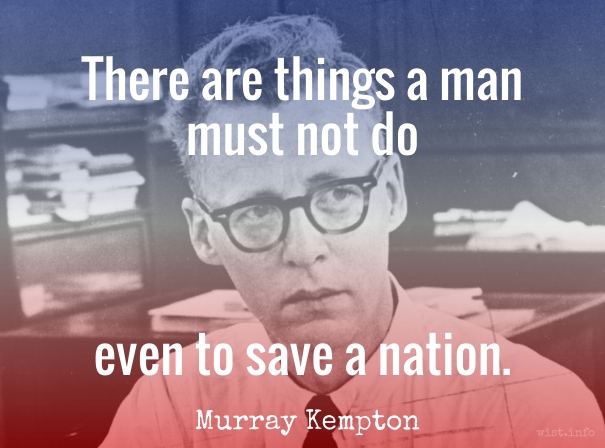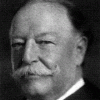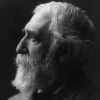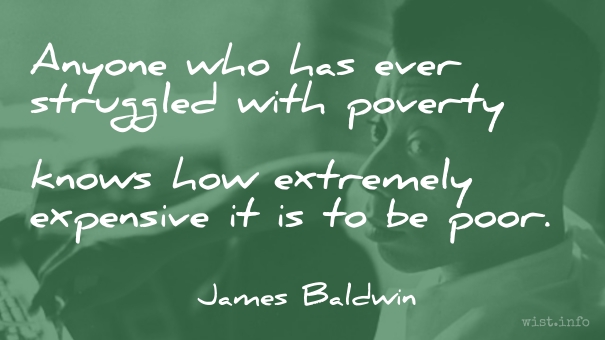Let us not envy a certain class of men for their enormous riches; they have paid such an equivalent for them that it would not suit us; they have given for them their peace of mind, their health, their honour, and their conscience; this is rather too dear, and there is nothing to be made out of such a bargain.
[N’envions point à une sorte de gens leurs grandes richesses; ils les ont à titre onéreux, et qui ne nous accommoderait point: ils ont mis leur repos, leur santé, leur honneur et leur conscience pour les avoir; cela est trop cher, et il n’y a rien à gagner à un tel marché.]Jean de La Bruyère (1645-1696) French essayist, moralist
The Characters [Les Caractères], ch. 6 “Of Gifts of Fortune [Des Biens de Fortune],” § 13 (6.13) (1688) [tr. Van Laun (1885)]
(Source)
One translator suggestions the "certain class of men" refers to the partisans, or tax-farmers: private tax collectors, often of humble origin, who purchased the right to their job, and were notorious for turning tax collection into a profitable profession.
(Source (French)). Alternate translations:
Let us not envy some Men their great Riches; their Burthens would be too heavy for us; we cou'd not Sacrifice, as they do, Health, Quiet, Honour and Conscience, to obtain 'em: 'Tis to pay so dear for them that there is nothing to be got by the Bargain.
[Bullord ed. (1696)]
Let us not envy some Men their great Riches, their burden would be too heavy for us; we cou'd not sacrifice, as they do, Health, Quiet, Honour and Conscience, to obtain 'em: 'Tis to pay so dear for 'em, that there is nothing to be got by the Bargain.
[Curll ed. (1713)]
Let us not envy some Men their accountable Riches; their Burthen would be too heavy for us; we could not sacrifice, as they do, Health, Quiet, Honour and Conscience, to obtain them. It is to pay so dear for them, that the Bargain is a Loss.
[Browne ed. (1752)]
We need not envy certain people their great wealth; they acquired it at a heavy cost, which would not suit us; they staked their rest, their health, their honour and their conscience to acquire it; the price is too high, and there is nothing to be gained by such a bargain.
[tr. Stewart (1970)]
Quotations about:
cost
Note not all quotations have been tagged, so Search may find additional quotes on this topic.
You always pay too much. Particularly for promises. There ain’t no such thing as a bargain promise.
Cormac McCarthy (1933-2023) American novelist, playwright, screenwriter
No Country For Old Men (2005)
(Source)
That man is the richest whose pleasures are cheapest.
Importance may be sometimes purchased too dearly.
Maturity is a high price to pay for growing up.
Tom Stoppard (b. 1937) Czech-English playwright and screenwriter
Where Are They Now? [Gale] (1970)
(Source)
The line in the play -- originally broadcast on BBC Radio 3 -- was based on an answer Stoppard himself gave in an interview by Peter Evans, reprinted in David Bailey and Peter Evans, Goodbye Baby and Amen: A Saraband for the Sixties (1969):
It is a very immature thing to worry about one’s stinking youth, but I don’t care: I think age is a very high price to pay for maturity.
There is a legend about a bird that sings just once in its life, more sweetly than any other creature on the face of the earth. From the moment it leaves the nest it searches for a thorn tree and does not rest until it has found one. Then, singing among the savage branches, it impales itself upon the longest, sharpest spine. Dying, it rises above its own agony to out-carol the lark and the nightingale. One superlative song, existence the price. But the whole world stills to listen, and God in His heaven smiles. For the best is only bought at the cost of the great pain. … Or so says the legend.
DRUMMOND: As long as the prerequisite for that shining paradise is ignorance, bigotry and hate, I say to hell with it.
Nedrick Young (1914-1968) American screenwriter and actor [pseud. Nathan E. Douglas]
Inherit the Wind, film (1960) [with Harold Jacob Smith]
(Source)
The original 1951 play was written by Jerome Lawrence and Robert E. Lee, but does not include this line, delivered in the film by Spencer Tracy. Young and Smith share the screenwriting credits.
The second time I ever saw you I learned what I had read in books but I had never actually believed: that love and suffering are the same thing and that the sum of love is what you have to pay for it and any time you get it cheap you have cheated yourself.
William Faulkner (1897-1962) American novelist
The Wild Palms [If I Forget Thee, Jerusalem], ch. 3 [Charlotte] (1939)
(Source)
“Too much trouble,” “Too expensive,” or “Who will know the difference” are death knells for good food.
Julia Child (1912-2004) American chef and writer
Mastering the Art of French Cooking, Foreword (1961)
(Source)
Old Boys have their Playthings as well as young Ones; the Difference is only in the Price.
Napping is too luxurious, too sybaritic, too unproductive, and it’s free; pleasures for which we don’t pay make us anxious. Besides, it seems to be a natural inclination. … Fighting off natural inclinations is a major Puritan virtue, and nothing that feels that good can be respectable.
Barbara Holland (1933-2010) American author
Quoted in Alex Beam, “Literature, One Screen at a Time,” New York Times (16 Nov 2005)
(Source)
We’d all like a reputation for generosity, and we’d all like to buy it cheap.
Mignon McLaughlin (1913-1983) American journalist and author
The Neurotic’s Notebook, ch. 9 (1963)
(Source)
The selfish man believes that by closing his heart against his fellows, and centering in self every thought and feeling, he escapes much suffering. But his egotistical calculations are invariably defeated; for his contracted sympathies being all directed to one focus, he so aggravates the ills he endures, that he expends on self along more painful pity than the most enthusiastic philanthropist devotes to mankind.
Marguerite Gardiner, Countess of Blessington (1789-1849) Irish novelist [Lady Blessington, b. Margaret Power]
Desultory Thoughts and Reflections (1839)
(Source)
It is not sufficient that the state of affairs which we seek to promote should be better than the state of affairs which preceded it; it must be sufficiently better to make up for the evils of the transition.
John Maynard Keynes (1883-1946) English economist
“The Political Doctrines of Edmund Burke” (1904)
(Source)
It is difficult to get a man to understand something, when his salary depends upon his not understanding it!
Upton Sinclair (1878-1968) American writer, journalist, activist, politician
I, Candidate for Governor: And How I Got Licked, ch. 20 (1935)
(Source)
A regular comment of his on the campaign trail. The wording is Sinclair's, though there are earlier references with the same sentiment (see here for more discussion).
Often misattributed to H. L. Mencken. (e.g., "Never argue with a man whose job depends on not being convinced") though not found in his work.
The newspapers still talk about glory but the average man, thank God, has got rid of that illusion. It is a damned bore, with a stalemate as the most probable outcome, but one has to see it through, and see it through with the knowledge that whichever side wins, civilisation in Europe will be pipped for the next 30 years. Don’t indulge in Romance here, Malcolm, or suppose that an era of jolly little nationalities is dawning. We shall be much too much occupied with pestilence and poverty to reconstruct.
E. M. Forster (1879-1970) English novelist, essayist, critic, librettist [Edward Morgan Forster]
Letter to Malcolm Darling (6 Nov 1914)
(Source)
Who kindly sets a wand’rer on his way
Does e’en as if he lit another’s lamp by his:
No less shines his, when he his friend’s hath lit.[Homó, qui erranti cómiter monstrát viam,
Quasi lúmen de suo lúmine accendát, facit.
Nihiló minus ipsi lúcet, cum illi accénderit.]Ennius (239-169 BC) Roman poet, writer [Quintus Ennius]
Telephus, frag 412-414 [tr. Miller (1913)]
(Source)
The fragment comes to us from Cicero, De Officiis [On Duties; On Moral Duty; The Offices], Book 1, ch. 16 / sec. 51 (44 BC). Original Latin. Alt. trans.:
He that directs the wandering traveller,
Doth, as it were, light another's torch by his own;
Which gives him ne'er the less of light, for that
It gave another.
[tr. Cockman (1699)]
The man who kindly points out the way to the wandering traveller, gives light to the lamp of another, without diminishing by the communication the light of his own.
[tr. McCartney (1798)]
He who kindly shows the bewildered traveller the right road, does as it were light his lamp by his own; which affords none the less light to himself after it has lighted the other.
[tr. Edmonds (1865)]
Who kindly shows a wanderer his way,
Lights, as it were, a torch from his own torch, --
In kindling others' light, no less he shines.
[tr. Peabody (1883)]
The man who kindly points the way top a wanderer, does as though he kindles a light from the light that is his; it shines none the less for himself when he has kindled it for his fellow.
["trib Teleph. R suae lumine accendit facis Hartman, Mnemoe., XXI, 382 fortass recte"]
Every human being has paid the earth to grow up. Most people don’t grow up. It’s too damn difficult. What happens is most people get older. That’s the truth of it. They honor their credit cards, they find parking spaces, they marry, they have the nerve to have children, but they don’t grow up. Not really. They grow older. But to grow up costs the earth, the earth. It means you take responsibility for the time you take up, for the space you occupy. It’s serious business. And you find out what it costs us to love and to lose, to dare and to fail. And maybe even more, to succeed. What it costs, in truth.
Maya Angelou (1928-2014) American poet, memoirist, activist [b. Marguerite Ann Johnson]
“Maya Angelou, The Art of Fiction No. 119,” Interview with George Plimpton, The Paris Review (Fall 1990)
(Source)
Angelou used the core section (credit cards, parking spaces) a number of times in different interviews.
The flip side … the flip side is that scientific research is a bottomless money pit. You can approximate Doing Science to standing on the Crack of Doom throwing banknotes down it by the double-handful, in the hope that if you choke the volcano with enough paper it will cough up the One Ring. Unless you’re doing pure mathematics or philosophy, of course, in which case it’s HB pencils and ruled A4 notepads all the way down.
“Rich people show their appreciation through favors,” I said. “When everyone you know has more money than they know what to do with, money stops being a useful transactional tool. So instead you offer favors. Deals. Quid pro quos. Things that involve personal involvement rather than money. Because when you’re that rich, your personal time is your limiting factor.”
Posterity! You will never know, how much it cost the present Generation, to preserve your Freedom! I hope you will make a good Use of it. If you do not, I shall repent in Heaven, that I ever took half the Pains to preserve it.
John Adams (1735-1826) American lawyer, Founding Father, statesman, US President (1797-1801)
Letter to Abigail Adams (26 Apr 1777)
(Source)
Freedom is worth paying for.
[La liberté vaut qu’on la paye.]
Jules Verne (1828-1905) French novelist, poet, playwright
Twenty Thousand Leagues Under the Sea, Part 2, ch. 8 “Vigo Bay” (1870)
(Source)
Honest Men often go to Law for their Right; when Wise Men would sit down with the Wrong, supposing the first Loss least. In some Countries the Course of the Courts is so tedious, and the Expence so high, that the Remedy, Justice, is worse than, Injustice, the Disease. In my Travels I once saw a Sign call’d The Two Men at Law; One of them was painted on one Side, in a melancholy Posture, all in Rags, with this Scroll, I have lost my Cause. The other was drawn capering for Joy, on the other Side, with these Words, I have gain’d my Suit; but he was stark naked.
The excellence of a gift lies in its appropriateness rather than in its value.
Charles Dudley Warner (1829–1900) American essayist and novelist
Backlog Studies, Eleventh Study (1872)
(Source)
The question [is] asked, “Is it common for a nation to obtain a redress of wrongs by war?” The answer to this question you will of course draw from history. In the meantime, reason will answer it on grounds of probability, that where the wrong has been done by a weaker nation, the stronger one has generally been able to enforce redress; but where by a stronger nation, redress by war has been neither obtained nor expected by the weaker. On the contrary, the loss has been increased by the expenses of the war in blood and treasure. Yet it may have obtained another object equally securing itself from future wrong. It may have retaliated on the aggressor losses of blood and treasure far beyond the value to him of the wrong he had committed, and thus have made the advantage of that too dear a purchase to leave him in a disposition to renew the wrong in future. In this way the loss by the war may have secured the weaker nation from loss by future wrong.
Thomas Jefferson (1743-1826) American political philosopher, polymath, statesman, US President (1801-09)
Letter to Noah Worcester (29 Jan 1816)
(Source)
But to those who expect us to calculate whether a compliance with unjust demands will not cost us less than a war we must leave as a question of calculation for them also whether to retire from unjust demands will not cost them less than a war. We can do to each other very sensible injuries by war, but mutual advantages of peace make that the best interest of both.
Thomas Jefferson (1743-1826) American political philosopher, polymath, statesman, US President (1801-09)
State of the Union Message (8 Nov 1804) [ME 3:369]
(Source)
Our anger and annoyance are more detrimental to us than the things themselves which anger or annoy us.
Marcus Aurelius (AD 121-180) Roman emperor (161-180), Stoic philosopher
Meditations, Book 11, #15 [tr. Staniforth (1964)]
(Source)
Alternate translations:
How many things may and do oftentimes follow upon such fits of anger and grief; far more grievous in themselves, than those very things which we are so grieved or angry for.
[tr. Casaubon (1634)]
Consider that our anger and impatience often proves much more mischievous than the provocation could possibly have done.
[tr. Collier (1701), #18]
Consider how much more pain is brought on us by the anger and vexation caused by such acts than by the acts themselves, at which we are angry and vexed.
[tr. Long (1862)]
Consider that our anger and impatience often prove much more mischievous than the things about which we are angry or impatient.
[tr. Zimmern (1887)]
How much more grievous are what fits of anger and the consequent sorrows bring than the actual things are which produce in us those angry fits and sorrows.
[tr. Farquharson (1944)]
Anger and the sorrow it produces are far more harmful than the things that make us angry.
[tr. Needleman/Piazza (2008)]
When you go in search of honey you must expect to be stung by bees.
Kenneth Kaunda (1924-2021) Zambian teacher, revolutionary, politician
Quoted in the Observer (London) (1982-09-05)
(Source)
Sometimes attributed to Joseph Joubert, but not found in his works.
Reality cannot be ignored, except at a price; and the longer the ignorance is persisted in, the higher and more terrible becomes the price that must be paid.
The difference between men and boys
Is the price of their toys.Malcolm Forbes (1919-1990) American billionaire
The Sayings of Chairman Malcolm, “Simple Truths” (1978)
Also attributed to Liberace, J. T. Russell, Joyce Brothers, Mark Twain, Doris Rowland, and Dorothy Parker. The phrase can be found in this form in Millard Dale Baughman, Educator's Handbook of Stories, Quotes and Humor (1963), and in 1964 Senate testimony.
For a likely predecessor, see Franklin.
Better be cheated in the price than in the quality of goods.
[Más vale ser engañado en el precio que en la mercadería.]
Baltasar Gracián y Morales (1601-1658) Spanish Jesuit priest, writer, philosopher
The Art of Worldly Wisdom [Oráculo Manual y Arte de Prudencia], § 157 (1647) [tr. Jacobs (1892)]
(Source)
(Source (Spanish)). Alternate translations:
It is better to be deceived in the Price, than in the Commodity.
[Flesher ed. (1685)]
Far better to be cheated in the price, than in the goods.
[tr. Fischer (1937)]
Better to be cheated by the price than by the merchandise.
[tr. Maurer (1992)]
Money often costs too much, and power and pleasure are not cheap.
Ralph Waldo Emerson (1803-1882) American essayist, lecturer, poet
“Wealth,” The Conduct of Life, ch. 3 (1860)
(Source)
Maybe we should always show pictures. Bin Laden, pictures of our wounded service people, pictures of maimed innocent civilians. We can only make decisions about war if we see what war actually is — and not as a video game where bodies quickly disappear, leaving behind a shiny gold coin.
Anyone who has ever struggled with poverty knows how extremely expensive it is to be poor.
James Baldwin (1924-1987) American novelist, playwright, activist
“Fifth Avenue, Uptown: a Letter from Harlem,” Esquire (Jul 1960)
(Source)
Preach, my dear Sir, a crusade against ignorance; establish and improve the law for educating the common people. Let our countrymen know that the people alone can protect us against these evils, and that the tax which will be paid for this purpose is not more than the thousandth part of what will be paid to kings, priests and nobles who will rise up among us if we leave the people in ignorance.
Thomas Jefferson (1743-1826) American political philosopher, polymath, statesman, US President (1801-09)
Letter to George Wythe (13 Aug 1786)
(Source)
If we are to keep our democracy, there must be one commandment: Thou shalt not ration justice.
Learned Hand (1872-1961) American jurist
Speech, Legal Aid Society of New York (1951-02-16)
(Source)
On ensuring that accused persons did not lack for counsel needed for a fair trial.
Every gun that is made, every warship launched, every rocket fired signifies, in the final sense, a theft from those who hunger and are not fed, those who are cold and are not clothed. This world in arms is not spending money alone. It is spending the sweat of its laborers, the genius of its scientists, the hopes of its children.
The cost of one modern heavy bomber is this: a modern brick school in more than 30 cities. It is two electric power plants, each serving a town of 60,000 population. It is two fine, fully equipped hospitals. It is some 50 miles of concrete highway. We pay for a single fighter with a half million bushels of wheat. We pay for a single destroyer with new homes that could have housed more than 8,000 people.
This, I repeat, is the best way of life to be found on the road the world has been taking. This is not a way of life at all, in any true sense. Under the cloud of threatening war, it is humanity hanging from a cross of iron.
Those who expect to reap the blessings of freedom, must, like men, undergo the fatigues of supporting it.
Thomas Paine (1737-1809) American political philosopher and writer
“The American Crisis” #4 (12 Sep 1777)
(Source)
“Imagine that you are creating a fabric of human destiny with the object of making men happy in the end, giving them peace and rest at last, but that it was essential and inevitable to torture to death only one tiny creature — that baby beating its breast with its fist, for instance — and to found that edifice on its unavenged tears, would you consent to be the architect on those conditions? Tell me, and tell the truth.”
“No, I wouldn’t consent,” said Alyosha softly.
Love anything and your heart will be wrung and possibly broken. If you want to make sure of keeping it intact you must give it to no one, not even an animal. Wrap it carefully round with hobbies and little luxuries; avoid all entanglements. Lock it up save in the casket or coffin of your selfishness. But in that casket — safe, dark, motionless, airless — it will change. It will not be broken; it will become unbreakable, impenetrable, irredeemable. To love is to be vulnerable.
But he that dares not grasp the thorn
Should never crave the rose.
Freedom is not free.
Martin Luther King, Jr. (1929-1968) American clergyman, civil rights leader, social activist, preacher
Speech, Institute on Nonviolence and Social Change, Bethel Baptist Church (3 Dec 1959)
(Source)
There is no doubt that the “grail” of efficiency leads to abuse. Programmers waste enormous amounts of time thinking about, or worrying about, the speed of noncritical parts of their programs, and these attempts at efficiency actually have a strong negative impact when debugging and maintenance are considered. We should forget about small efficiencies, say about 97% of the time: premature optimization is the root of all evil.
Heaven is a cheap Purchase, whatever it cost.
Thomas Fuller (1654-1734) English physician, preacher, aphorist, writer
Gnomologia: Adages and Proverbs, #2481 (1732)
(Source)
Cheat me in the Price, but not in the Goods.
Thomas Fuller (1654-1734) English physician, preacher, aphorist, writer
Gnomologia: Adages and Proverbs, #1090 (1732)
(Source)
DEBAUCHEE, n. One who has so earnestly pursued pleasure that he has had the misfortune to overtake it.
Ambrose Bierce (1842-1914?) American writer and journalist
“Debauchee,” The Cynic’s Word Book (1906)
(Source)
Included in The Devil's Dictionary (1911).
Originally published in the "Devil's Dictionary" column in the San Francisco Wasp (1881-12-02).

















































